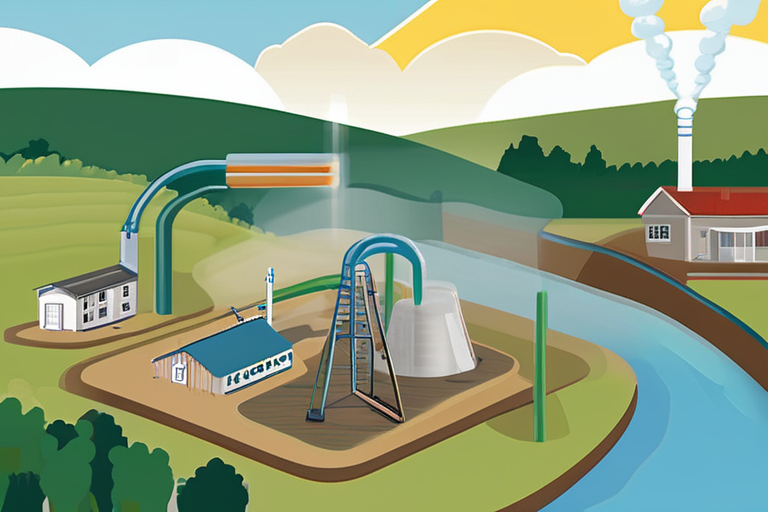Scientists Suspect Fracking Contaminated Pennsylvania Town's Wells
In the summer of 2022, John Stolz, a Duquesne University professor, received a phone call from the Center for Coalfield Justice, an environmental nonprofit in southwestern Pennsylvania. They requested his help in investigating strange odors and discoloration in well water in New Freeport, a small town in Greene County. The residents suspected that fracking fluids had contaminated their wells.
Stolz, who has been testing water for signs of pollution from fracking for over 10 years, agreed to investigate. He and his colleagues carried out testing on the affected wells, which revealed high levels of methane and other contaminants. "The results were alarming," Stolz said in an interview. "We found evidence of drilling fluids and chemicals that are commonly used in the fracking process."
According to Stolz, the contamination is likely due to a frac-out, where drilling fluids escape their intended path and end up at the surface or elsewhere underground. In this case, the fluids may have entered the abandoned gas well nearby. "Frac-outs can happen when there's a failure in the well casing or cementing," Stolz explained. "It's like a pipe bursting, but underground."
The residents of New Freeport had noticed strange odors and discoloration in their well water for months before contacting the Center for Coalfield Justice. Their pets were refusing to drink the water, which raised concerns about its safety. "We've been living here all our lives, and we never thought this would happen," said one resident, who wished to remain anonymous.
Fracking has been a contentious issue in Pennsylvania since it began in 2008. The state's Department of Environmental Protection (DEP) regulates the industry, but critics argue that the regulations are not stringent enough. "The DEP needs to do more to protect communities like New Freeport," said Rachel Filu, executive director of the Center for Coalfield Justice.
The incident in New Freeport highlights the risks associated with fracking and the need for better regulation and monitoring. Stolz's findings have sparked calls for increased transparency and accountability from the industry. "This is a wake-up call for policymakers and regulators," said Stolz. "We need to do more to protect public health and safety."
The situation in New Freeport is ongoing, with residents waiting for the DEP to take action. The Center for Coalfield Justice has filed a complaint with the agency, requesting that it investigate the contamination and hold the responsible parties accountable.
As the debate over fracking continues, Stolz's research serves as a reminder of the potential risks associated with this practice. "Fracking is not just an environmental issue; it's also a public health concern," he said. "We need to prioritize the safety and well-being of communities like New Freeport."
Background:
Fracking, or hydraulic fracturing, involves injecting high-pressure fluids into underground rock formations to release oil and gas. The process has been linked to groundwater contamination, air pollution, and other environmental concerns.
Additional Perspectives:
"This is a classic example of the risks associated with fracking," said Michael E. Mann, climate scientist at Penn State University. "We need to be more vigilant in monitoring and regulating this industry."
"The incident in New Freeport highlights the importance of community engagement and participation in decision-making processes related to energy development," said Rachel Filu, executive director of the Center for Coalfield Justice.
Current Status:
The DEP has acknowledged receipt of the complaint filed by the Center for Coalfield Justice but has not taken any action yet. The residents of New Freeport continue to wait for a resolution to their situation.
Next Developments:
Stolz and his colleagues plan to continue monitoring the wells in New Freeport to determine the extent of the contamination. They also hope to raise awareness about the risks associated with fracking and advocate for stronger regulations.
*Reporting by Motherjones.*



 Hoppi
Hoppi

 Hoppi
Hoppi

 Hoppi
Hoppi

 Hoppi
Hoppi

 Hoppi
Hoppi

 Hoppi
Hoppi











